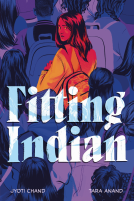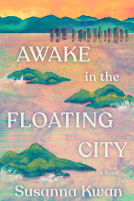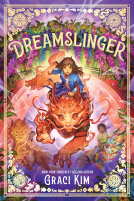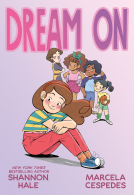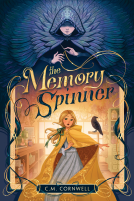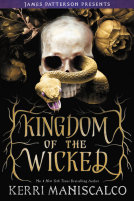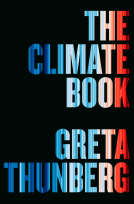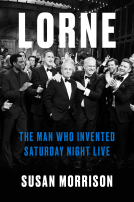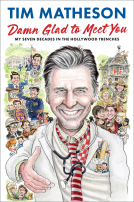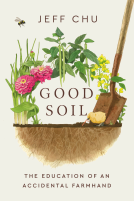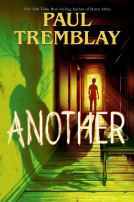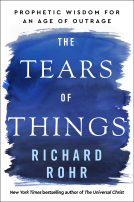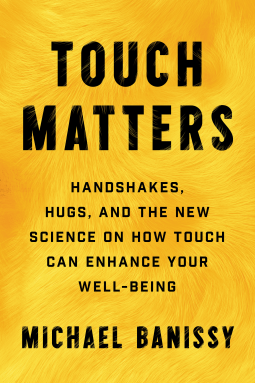
Touch Matters
Handshakes, Hugs, and the New Science on How Touch Can Enhance Your Well-Being
by Michael Banissy
This title was previously available on NetGalley and is now archived.
Send NetGalley books directly to your Kindle or Kindle app
1
To read on a Kindle or Kindle app, please add kindle@netgalley.com as an approved email address to receive files in your Amazon account. Click here for step-by-step instructions.
2
Also find your Kindle email address within your Amazon account, and enter it here.
Pub Date Apr 25 2023 | Archive Date Apr 24 2023
Chronicle Books | Chronicle Prism
Talking about this book? Use #TouchMatters #NetGalley. More hashtag tips!
Description
Every day, we use our sense of touch to navigate the world. A handshake, a pat on the shoulder, a hug—all are essential touches that make up our daily lives. In Touch Matters, social neuroscientist Michael Banissy brings together diverse scientific insights from the Touch Test—the world’s largest contemporary survey on touch, with 40,000 participants from 112 countries.
Professor Banissy unfolds the research behind why touch is essential to our well-being, combining expert findings with notable touch points in pop culture to explore the role it plays in our physical and digital social life, in the workplace, in the bedroom, and more. Learn why a hugged person is a happier person, why teams who high-five each other win more games, and how a handshake makes you more likely to tell the truth. Banissy offers a groundbreaking and surprising new perspective on touch, with guidance on how to enhance your level of touch for a happier, healthier life, exploring topics including:
- Your “touch personality”
- How touch defines our relationships and our self-esteem
- The impact of touch on our physical and mental health
- Cultural distinctions around touch and how to navigate them
- Solutions to the “touch hunger” that has become a modern epidemic
Touch Matters is a fascinating window into one of our most important and basic senses—and how to harness its power.
FEATURES ORIGINAL RESEARCH FROM "THE TOUCH TEST": Touch Matters is based on one of Banissy's most recent projects—the Touch Test—a science and broadcast collaboration with the BBC and Wellcome Collection. This project explored attitudes and experiences of touch via the world's largest contemporary survey on the topic, public exhibitions, and a series of broadcast programs focused on the topic of touch that received worldwide attention. The project had approximately 40,000 participants from 112 countries.
OFFERS GUIDANCE ON COMMUNICATING AND CONNECTING IN OUR DAILY AND PROFESSIONAL LIVES: As we return to office work and live in a world where touch has become loaded with meaning, this book will help people understand how important touch is and the role it plays in every aspect of our lives, from relationships and friendships to the workplace and team activities and much more.
Perfect for:
- Readers interested in science, psychology, and self-help
- Fans of James Nestor's Breath, Marc Brackett's Permission to Feel, Bill Bryson's The Body, Mark Miodownik's Stuff Matters
- Adults and parents of children resuming in-person activities including going back to the office, returning to school, traveling, and socializing
- Those interested in learning more about the science of touch, touch starvation, and how important touch is to child/human development
- People struggling with depression or anxiety around physical contact
Available Editions
| EDITION | Other Format |
| ISBN | 9781797221441 |
| PRICE | $27.95 (USD) |
| PAGES | 256 |
Available on NetGalley
Featured Reviews
 Concert K, Reviewer
Concert K, Reviewer
As someone who doesn't want to be touched (physical touch is often close to if not the bottom of my results on love language quizzes) I was curious to see how much "Touch Matters" and what I might have been missing out on by trying to avoid it. I think a bit of it might be because I wasn't much for being given "pleasant touch" as a reward growing up. In fact, quite the opposite. I'm also in no way a fan of social touch.
While this book has shown me that a lot of these touches can be beneficial to me (especially hugging), I am not sure I am going to change how I feel about being touched any time soon! I guess I'll just continue to be extra stressed. It is all I've ever known, after all.
The book will give you a quiz to find out your "Touch Persona" by having you answer a series of questions on a range from "strongly agree" to "strongly disagree". Turns out I am more agreeable towards intimate touch and less so with unfamiliar touch, affective touch behaviors and friends and family. The outcome of this quiz was really not all that surprising to me.
I received a free e-copy of this book in order to write this review. I was not otherwise compensated.
The odds are fairly strong that if you pick up a copy of Michael Banissy's "Touch Matters" that you're exploring your own relationship with touch whether that be positive or negative.
I've always had a mixed relationship with touch and even sought therapy for what I called a "fear" of touch when I was in my early 20s, though the word "fear" was likely too strong. As someone who grew up with a disability and experienced multiple significant physical traumas in childhood, physical contact at least felt like it was largely elusive for much of my childhood and young adult years.
As the years have gone by, my comfort with touch hasn't necessarily changed but my appreciation for it has grown significantly. Thus, I found myself completely intrigued by Banissy's research around touch and the world he creates with "Touch Matters."
I will confess that "Touch Matters" wasn't entirely what I expected. With a strong emphasis on research around a variety of touch issues, "Touch Matters" is very strong when it comes to the "science" of touch while less pursuant of the therapeutic issues that may impact someone's relationship with touch.
Banissy starts with the premise that touch is our most underappreciated sense and yet is essential for our health and well-being. He explores the role of touch in society and then brings in diverse scientific insights developed from the world's largest study on touch (from which the book largely finds its foundation). Banissy offers perspectives on how to enhance one's relationship with touch and offers a clear assumption that this will, in turn, guide one toward a happier, healthier life. The science documented here is remarkable, in-depth, and well resourced. While at times the conclusions feel a tad presumptive, I'm also aware that I presented to this reading with my own biases.
Banissy explores why touch is essential to our well-being, the role touch plays in our relationships (personal and professional and recreational), and explores vital issues such as our "touch personalities," touch starvation, the impact of touch on physical and mental health, and how touch defines our relationships and self-esteem.
I found myself at times wishing that Banissy more fully explored obstacles to touch, such as trauma or disability or even cultural factors, but as someone who has devoted many years to developing a healthier relationship with touch I can say without a doubt that I found "Touch Matters" engaging and informative from beginning to end.
Something that I wasn’t sure when I started reading this book was how comfortable or uncomfortable I would be while reading it. I have a very varied history with touch, where in different times of my life, I would be more or less adverse to it.
While I don’t know if all readers who have a similar background as I do with touch will feel the same, I’m grateful the writing was educational enough that it helped me separate myself from what I was reading and it was casual enough to keep me reading.
A part of the early book discusses how this affected babies arguably into adulthood. I don’t know why, but there’s a small part of me that’s sad that some of my health issues might be tied with not being held or touched enough. I’m grateful there have been studies now and opportunities to help premature babies have that exposure to loving touch early on in their lives.
Chapter 3 and how it delved into hugs was another part that made me realise just how hungry I am for that connection. I love hugs. I could go absolutely feral for a good hug. My family and circle here? They aren’t big huggers. If I weren’t so scared of the outside world still, I think I’d be a huge advocate for the return of Free Hugs. I’d be out on the corner daily. Also the fact there have been studies that hugged people are healthier people is absolutely mind blowing.
Going further, learning more about technology and other advancements, reading about the differences in how people perceive touch, and just discovering how one person viewed this journey while writing this was great. Knowing such advancements are so close on the horizon doesn’t feel real, but I know it is.
One of the most important things I want to address about this is how aware the author is of the findings and how he reminds us frequently of the nuance with the topic of touch. He knows studies aren’t perfect, he addresses ethical issues, he acknowledges the gaps in data. And while I wish there could have been more time to delve into different cultures and groups of people, I still learned a lot.
Thank you again to NetGalley and Michael Banissy for the opportunity to read this book. I look forward to seeing it out in the wild and hope people take the time to at least skim through this read.
 Reviewer 1085305
Reviewer 1085305
The connection between the physical realm and our mental states and health is fascinating. This book delves into science of touch and how that effects us. I was most aware when preparing for having a newborn and learning about skin to skin contact, etc., and how important touch is to basic human well-being. This book goes into the different kinds of skin and how touch is optimized for human likeability ("affective touch" response), mentions the Romanian orphanage touch-starved babies and the negative effects of their touch-depravation, how not enough or the right kind of touch ("affection hunger") can create negative outcomes in adults, and explores some analysis of benefits and perils of touch in the workplace, and more.
Structure-wise, it is broken into 4 parts, 10 chapters, and the end of each chapter has a summary of the main points. If you are looking for understandable to the lay-person, yet science-based research on touch, this would be a good choice.
*This review was written in connection with receiving a review copy from NetGalley.*
